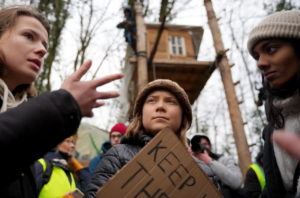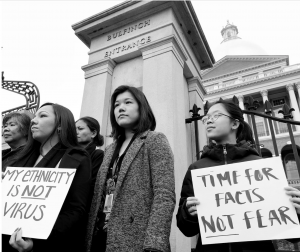Monday, 1 May 2023, 1:00-2:30PM EST / 7:00-8:30PM CAT and CMT
This International Center for MultiGenerational Legacies of Trauma webinar is held in observance of the 100 days of commemoration and national mourning period (April 7 – July 4) of the 1994 genocide against the Tutsi in Rwanda. An estimated 100,000-250,000 women were raped during those 100 days. Rape survivors faced shame, stigma, pregnancy, and sexually transmitted diseases, such as HIV. Focusing on rape as a weapon of genocide, participants in this ICMGLT’s webinar will discuss the aftermath of genocidal rape for women and their children, the efforts put forth to support their resilience, and their role in international justice.
Speakers:
Donatilla Mukamana, PhD
An Associate professor at the University of Rwanda, School of Nursing and Midwifery/ Mental Health Nursing Department, Donatilla is a mental health nurse, educator, researcher and clinician who has worked with victim/survivors of the 1994 genocide against the Tutsi, focusing primarily on rape survivors and their children, for over two decades. Her Advanced Diploma in mental health nursing from Centre de formation de soins infirmiers en santé mentale et en psychiatrie de Genève/ Suisse, followed her Bachelor, Master and PhD degrees in Nursing at the University of Kwazulu- Natal/ South Africa.
Didacienne Mukahabeshimana
An activist for peace who believe in Mahatma Ghandi quote, “Change yourself to change the world,” Didacienne’s earned her bachelor degree in social science and specialty in conflict resolution at Ottawa University. She contributed to different initiatives for peace in countries in/after conflict, such as Rwanda, Burundi, South Soudan, Central Africa and Solomon Islands. She works as an Advocacy Officer for SEVOTA organization, supporting women and children of survivors of sexual and gender-based crime during the genocide of Tutsis in 1994 in Rwanda.
Glorieuse Uwizeye, PhD
An Assistant Professor at Western University in the Arthur Labatt Family School of Nursing, Glorieuse is a Mental Health Nurse who completed her postdoctoral fellowship at Dartmouth College, a PhD in Nursing from the University of Illinois in Chicago, a Bachelor of Nursing Honours, and a Master of Nursing (both mental health) at the University of KwaZulu Natal, South Africa. Her research focuses on the intergenerational health impacts of the genocide against the Tutsi and epigenetic mechanisms linking prenatal exposure to genocide or genocidal rape and adulthood health outcomes.
Moderator:
Dr. Yael Danieli, Founder and Executive Director, International Center for the study, prevention and treatment of MultiGenerational Legacies of Trauma; Director, Group Project for Holocaust Survivors and their Children; Past-President, International Society for Traumatic Stress Studies.




